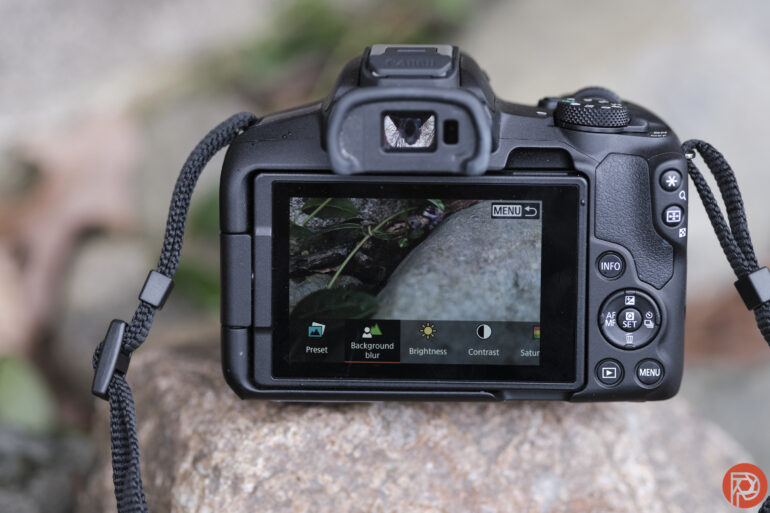The Canon R50 is a beginner-friendly mirrorless camera with a 24.1 MP sensor, 4K video, and fast autofocus, but lacks in-body stabilization.
The Canon R50 has gained attention in the photography world as a promising entry-level mirrorless camera. But does it measure up to today’s standards? In this article, we’ll explore whether the Canon R50 truly stays up to date with current technology and market demands.
The Canon R50 is part of Canon’s mirrorless lineup, offering features suitable for beginners and enthusiasts alike. Positioned as a versatile and user-friendly camera, the R50 aims to deliver high-quality performance without the complexity that often accompanies advanced cameras. But with the fast pace of technological advancements, does the Canon R50 have what it takes to compete in today’s market?

The Canon R50 boasts several key features designed to appeal to both new photographers and those upgrading from older models. These include:
- 24.1 Megapixel APS-C CMOS Sensor: Delivers excellent image quality with vibrant colors and sharp details.
- DIGIC X Image Processor: Ensures fast processing speeds, reduced noise, and improved battery efficiency.
- Dual Pixel CMOS AF II: Canon’s latest autofocus technology offers faster and more accurate focusing, perfect for moving subjects.
- 4K Video Recording: Provides high-resolution video recording at up to 30 fps, with options for Full HD at higher frame rates.
- Built-in Wi-Fi and Bluetooth: Enables easy sharing and remote control via a smartphone or tablet.
These features indicate that the Canon R50 is well-equipped to meet many modern photography needs, but how does it perform in real-world scenarios?
The Canon R50 performs admirably across various settings, from low-light photography to fast-paced action shots. The Dual Pixel CMOS AF II system excels in quickly locking focus, making it a great choice for capturing dynamic subjects like sports or wildlife. Additionally, the 4K video capability is a strong selling point for content creators who want high-quality footage.
However, some users might find the lack of in-body image stabilization (IBIS) a drawback, especially when shooting handheld in low light or using longer focal lengths. This could be considered a gap in comparison to competing models from other brands.
Also read: Are Hidden Cameras Allowed in Public Buildings Kansas State University – Complete Guide!
The Canon R50 comes equipped with built-in Wi-Fi and Bluetooth, making it easy to transfer photos and videos to your devices or directly to social media. This modern connectivity ensures the camera remains relevant in an age where quick sharing and online presence are essential for many users.
Moreover, the camera supports Canon’s RF lens mount, which is compatible with a wide range of lenses, including the latest RF lenses designed for high resolution and advanced features. This gives users access to Canon’s expanding lineup of mirrorless lenses, making the R50 a future-proof choice.
The Canon R50 incorporates several technologies that keep it competitive in today’s market. The use of the DIGIC X processor, advanced autofocus, and 4K video recording are all signs that Canon has designed this camera to meet current demands. However, some might argue that the absence of certain features like IBIS and a fully articulating screen might place it slightly behind some competitors.
Despite these points, the Canon R50 still offers a strong performance for its price point, making it a viable option for beginners and enthusiasts who prioritize image quality, ease of use, and modern connectivity features.
To determine if the Canon R50 is up to date, it’s essential to compare it to other cameras in the same category. Competing models from brands like Sony, Nikon, and Fujifilm offer similar specifications, but each has its unique advantages:
- Sony a6100: Offers real-time tracking autofocus and 4K video, but lacks the intuitive Canon interface and color science.
- Nikon Z50: Has an excellent EVF (Electronic Viewfinder) and solid build quality, but the lens selection may be more limited.
- Fujifilm X-T200: Boasts unique film simulation modes and a larger touchscreen, but its autofocus system may not match Canon’s Dual Pixel AF.
While each of these models offers unique benefits, the Canon R50 holds its own in terms of image quality, ease of use, and overall performance.

Feedback from Canon R50 users has generally been positive, particularly regarding the camera’s ease of use, compact design, and image quality. Many users appreciate the intuitive controls and menu system, which makes it an excellent choice for those new to mirrorless cameras.
However, some users have expressed a desire for more advanced features, such as IBIS or a higher resolution EVF. While these might be seen as drawbacks for some, most users find that the Canon R50 offers a balanced blend of features for everyday photography and content creation.
Canon has a strong track record of supporting its cameras with firmware updates, which could potentially enhance the Canon R50’s features over time. This could include improvements to autofocus performance, video capabilities, or even new creative shooting modes.
By regularly updating its firmware, Canon ensures that the R50 remains relevant and up to date, extending its lifespan and value to users.
The Canon R50 features a 24.1 MP APS-C sensor, DIGIC X processor, Dual Pixel CMOS AF II, 4K video recording, and built-in Wi-Fi and Bluetooth.
No, the Canon R50 does not have in-body image stabilization, which could be a drawback for some users.
The Canon R50 competes well with similar models like the Sony a6100 and Nikon Z50, offering excellent image quality and user-friendly features, though it lacks some advanced options like IBIS.
Yes, the Canon R50 is ideal for beginners due to its intuitive controls, compact design, and user-friendly interface.
Yes, Canon often provides firmware updates that can enhance the camera’s features and performance over time.
In conclusion, the Canon R50 camera is a solid choice for those looking for a reliable, easy-to-use mirrorless camera with modern features. While it may lack some advanced features found in higher-end models, it offers excellent performance, especially for beginners and hobbyists. With its current specifications and potential for future updates, the Canon R50 remains a competitive and up-to-date option in today’s market.
